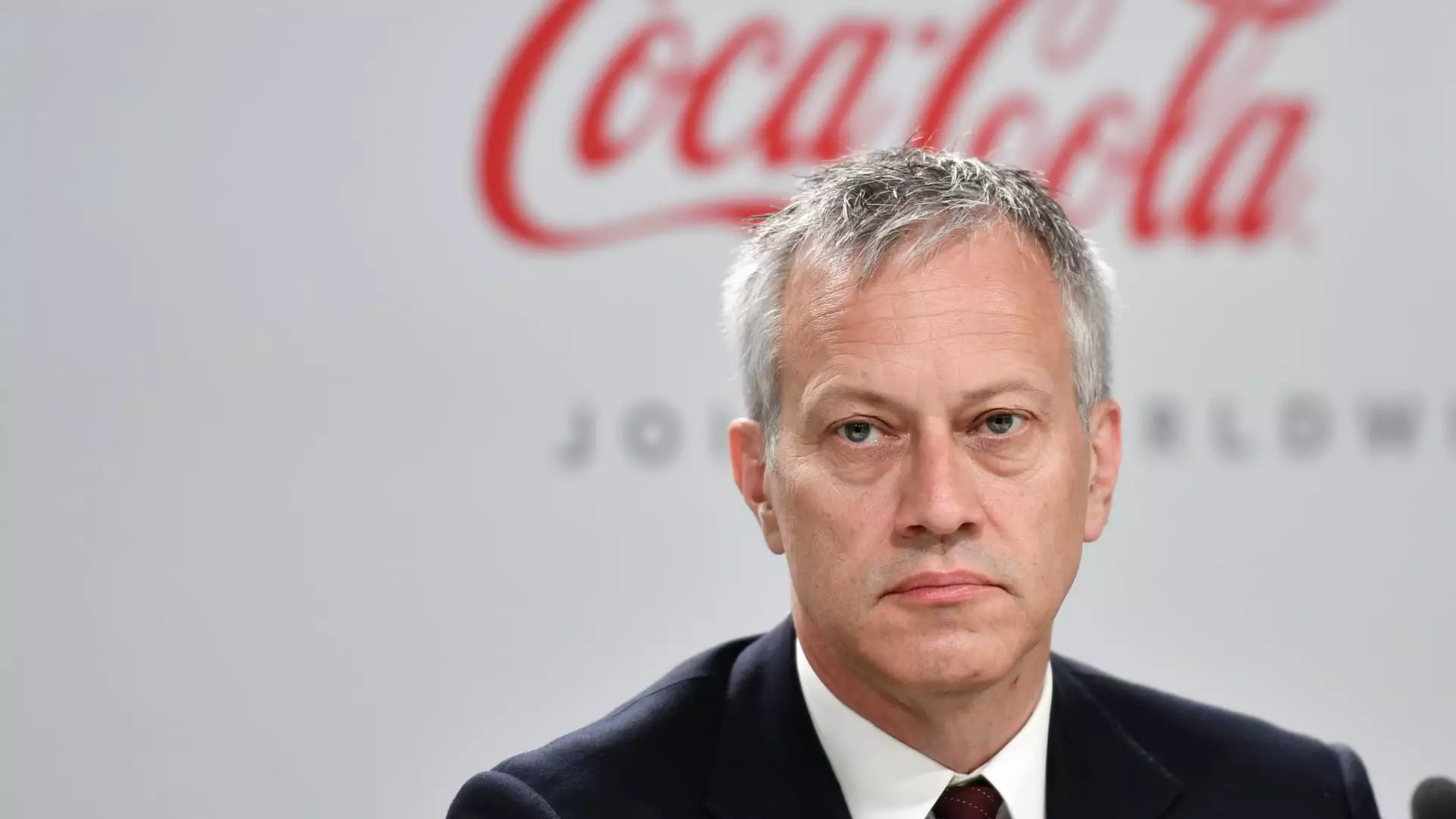The recent E. coli outbreak connected to McDonald’s Quarter Pounder burgers has raised significant health concerns across multiple states. The Centers for Disease Control and Prevention (CDC) identified 49 reported cases, with the potential risk extending to the fast-food giant’s vast customer base. As McDonald’s is not just a restaurant chain but also a major collaborator with Coca-Cola, the ramifications of this incident are particularly significant. However, Coca-Cola’s CEO James Quincey downplayed any alarm regarding the impact on their sales, indicating confidence in their robust partnership and the effectiveness of their marketing strategies.
The immediate actions taken by McDonald’s—removing Quarter Pounders from specific menus and temporarily halting the distribution of slivered onions—illustrates the seriousness of the situation. Yet, these responses also highlight McDonald’s quick adaptability in facing public health crises. With consumer trust at stake, swift measures are paramount in mitigating fallout from such outbreaks.
Coca-Cola: Standing Firm in Uncertain Times
Quincey’s perspective on the outbreak illustrates a layer of assurance in Coca-Cola’s resilience amidst potential setbacks linked to its primary customer. Coca-Cola has historically stood by McDonald’s, reflecting a symbiotic economic relationship nurtured over nearly seven decades. Their collaborative efforts extend not only to mutual sales strategies but also to advertising campaigns aimed at bolstering each other’s market presence. The announcement of Coca-Cola contributing marketing funds for McDonald’s $5 value meal is one such instance, showcasing their interconnected strategic maneuvers.
Interestingly, this partnership raises questions about brand resilience and corporate identity. In a crisis where one partner teeters, how does the other maintain its balance? As consumer behavior shifts towards health consciousness—with many hesitant to frequent fast-food outlets during health scares—Coca-Cola is faced with the challenge of maintaining its sales through diversified offerings that appeal to a more health-oriented consumer base.
The outbreak comes at a time when consumers are already pulling back on spending, a trend that has adversely affected both McDonald’s and Coca-Cola. The climate of financial restraint means that reliance on discounts and promotional deals becomes even more critical. Here, the collaborative promotional activities between McDonald’s and Coca-Cola become essential strategies in seeking to retain patronage.
At the same time, the downward trajectory in consumer spending cannot be overstated. A market where consumers are tightening their wallets compels both corporations to innovate, refine their offerings, and connect intimately with the consumer mindset. The current crisis accelerates a trend where consumers might not only prioritize cost but also exigent factors like health and safety when it comes to dining decisions.
In light of these developments, it is essential to consider the stock market’s response. Coca-Cola’s shares experienced a drop of over 2% in the morning following Quincey’s earnings report, indicating investor apprehension regarding potential ramifications of the E. coli outbreak. The market’s reaction serves as a bellwether for confidence in Coca-Cola’s long-term strategies in times of crisis.
Investor sentiment can often reflect a mixture of optimism and anxiety. While Coca-Cola’s strong third-quarter earnings exceeded Wall Street’s expectations, the brewing uncertainties surrounding consumer behavior post-outbreak could pose longer-term risks. Stock price fluctuations reveal how external factors, combined with internal financial performance, critically shape perceptions about a company’s future viability.
Ultimately, the intertwined fates of Coca-Cola and McDonald’s present a unique case study in brand loyalty, partnership, and crisis management. As they navigate the immediate turmoil surrounding the E. coli outbreak, their ability to adapt swiftly while maintaining consumer trust will be crucial. Both entities must continue balancing the scales between public health issues and economic sustainability. The outcome of this incident could lead to significant learning opportunities, not just for Coca-Cola and McDonald’s, but also for the broader food and beverage industry. In a landscape where consumer sentiments shift rapidly, maintaining strong, trust-based relationships will be instrumental in weathering storms that may come their way.

Leave a Reply